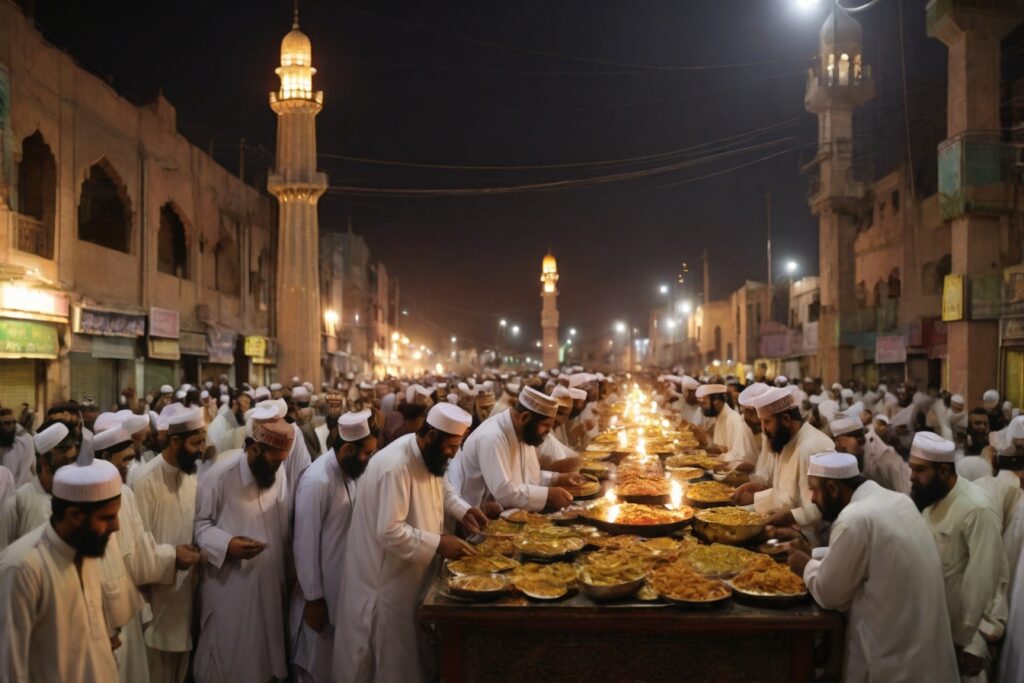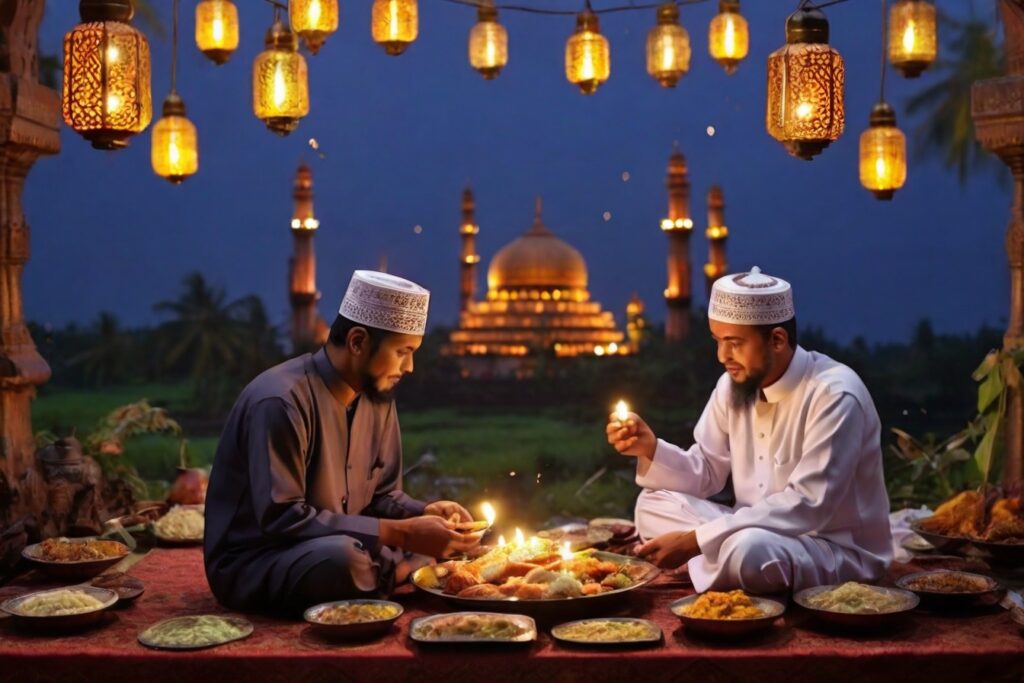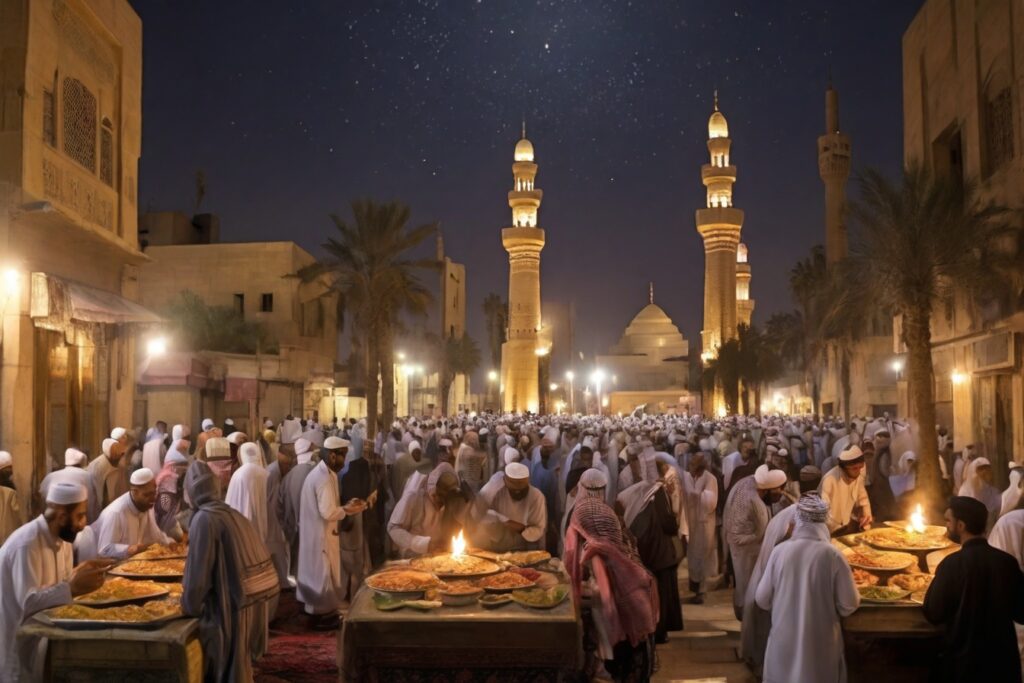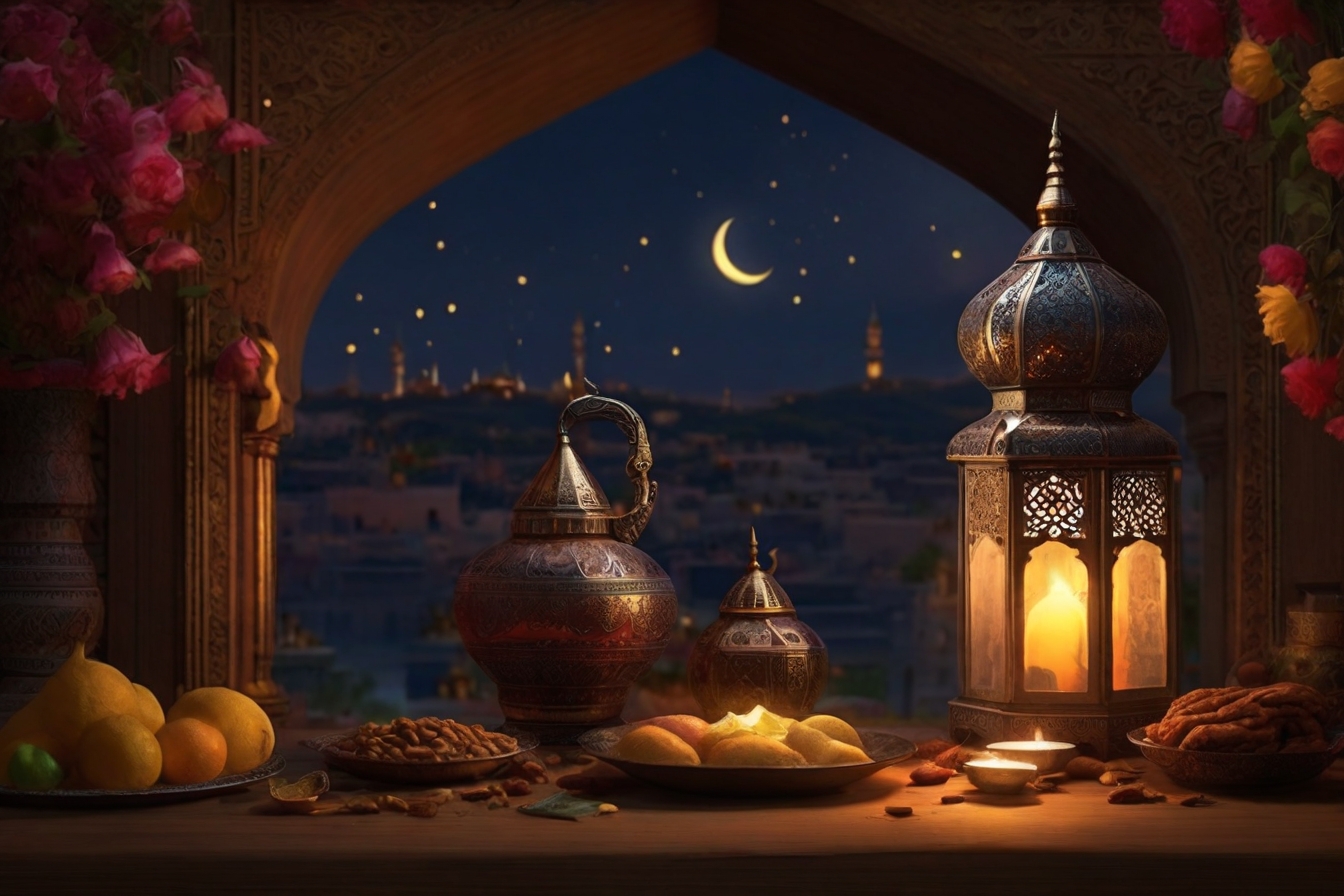Welcome to the holy month of Ramadan, which is celebrated with jubilant celebrations, passionate prayers, and charitable deeds. Muslims throughout. Ramadan is a month of spiritual thought and devotion that begins on Sunday nights and lasts from the pre-dawn prayers of Fajr to the evening feasts of Iftar.
Obstacles the Muslim Community Faces:
But even among the many traditions and practices that the Muslim brothers and sisters follow—from the north to the south—problems continue. This year’s celebrations were marred by the specter of war and starvation, particularly in the Gaza Strip.
Due to sharp increases in inflation in a number of nations, many people are struggling with the growing expense of goods. Despite facing financial difficulties, Muslims take comfort in looking forward to the many blessings of this holy month, which is characterized by prayers, fasting as a form of self-discipline, and spending quality time with loved ones.
Ramadan in Pakistan:

Maulana Tanveer-ul-Haq Thanvi, an Islamic scholar, says that Karachi, a city in southern Pakistan, is a prime example of Ramadan adherence. During this holy month, the mosque’s attendance grows to 10,000–15,000 people under his family’s leadership. In particular during the evening Maghrib prayers, efforts are being made to guarantee that there is enough room, food, and water for the attendees.
All Muslims fast from sunrise to sunset and refrain from eating, smoking, and having close physical contact. The fast can be broken with just a sip of water, which helps to focus attention on charity and prayer.
It is emphasized by Maulana Tanveer-ul-Haq Thanvi that prayers are accepted and religious duties are intensified every day of Ramadan. One of the main points of his sermons is the significance of helping those who are more in need, even if they have nothing in return.
Breaking the Fast: A Global Tradition:
Many people break their fasts during Iftar at sundown, just as the Prophet Muhammad (peace be upon him) did during the Maghrib prayers. After that, people get together for “Iftar,” a potluck meal enjoyed with loved ones. The atmosphere of celebration lasts long into the night.
As Maulana Tanveer-ul-Haq Thanvi put it, “People in the area don’t sleep. You’ll witness kids playing cricket in the streets after Iftar.”
Ramadan in Indonesia:

The world’s largest Muslim country, Indonesia, has a broad range of Ramadan customs that highlight the country’s rich cultural heritage. Many participate in “rendang” celebrations, which include beef cooked with coconut milk and regional seasonings.
This year, however, there are issues because of the failure of the local rice crop and worldwide inflation, which drives up food prices. Families make an effort to uphold the fundamentals of Ramadan, which are represented by group feasts and prayers, despite such hardships.
Ramadan in Egypt:

In Egypt, bakers offer holiday sweets, the streets light up with colorful Ramadan lanterns, and television networks show soap operas throughout prime time in an attempt to keep viewers engrossed during the post-Iftar coma.
A guy outside a bakery, presenting trays of treats like baklava, qatayef, and kunafa—a sweet treat made with layers of pastry and syrup—jokes, “Ramadan is a month of prayers, but also of sweets.”
Despite the joyous occasion, many people are struggling. The recent devaluation of the currency, which was a component of the International Monetary Fund’s economic rescue, has caused prices to soar, negatively impacting the average person’s purchasing power.
Egypt: Navigating Through Economic Challenges:
In Egypt, the Arab country with the largest population, one in three individuals was impoverished. The father of four, Abdul Kareem Salah, a government employee, mentioned how hard it was to buy groceries in the underprivileged area surrounding the Saida Zainab Mosque, which was lit up by lanterns and lights.
“We only purchase necessities. Meat has turned into a luxury for us and many others like us,” he claims.
Muslims from throughout the world flock to mosques and nonprofits as Ramadan approaches, supplying the poorest with free Iftar dinners and sometimes enough meat to last them the whole year.
Conslusion:
In the end, communities gather together throughout Ramadan to overcome obstacles with kindness, adaptability, and a shared commitment to the values of self-control, empathy, generosity, and self-discipline. It is also a time for spiritual meditation.




